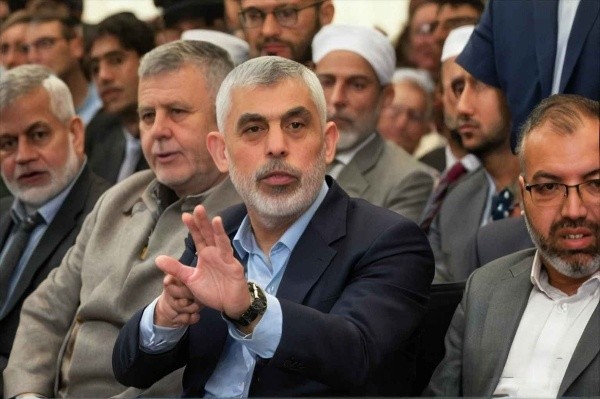Iran’s Plan to Strike Back Against the U.S.
Iran’s Military Preparations Following U.S. Attacks
Loading...

Six defendants, three of whom have been killed in Israeli attacks, named in US case against Hamas officials.
Criminal Charges Unveiled Against Six Hamas Officials
In a significant development, the United States Justice Department has announced criminal charges against several top leaders of Hamas, citing their involvement in the October 7 attacks in southern Israel. This move has been interpreted by some analysts as largely symbolic, reflecting the U.S. stance against the Palestinian organization, which has been designated as a terrorist group.
The complaint, unsealed on Tuesday, identifies six defendants, three of whom have been killed in Israeli military operations. The deceased include former Hamas political chief Ismail Haniyeh, assassinated in July in Tehran; Mohammed Deif, who died in an Israeli airstrike in Gaza the same month; and Marwan Issa, reportedly killed in a March attack. The living defendants include Yahya Sinwar, Hamas’s current leader believed to be in Gaza; Khaled Meshaal, who heads the group's diaspora office from Doha; and Ali Baraka, a senior official based in Lebanon.
U.S. Attorney General Merrick Garland stated, “Those defendants—armed with weapons, political support, and funding from the Government of Iran, and support from Hezbollah—have led Hamas’s efforts to destroy the State of Israel and murder civilians in support of that aim.”
Timing and Implications of the Charges
These charges were originally filed in February but remained sealed, with the intent of capturing Haniyeh before being made public. Following his assassination, which was attributed to Israeli operatives, the Justice Department opted to reveal the charges, as reported by Reuters.
This legal action against Hamas leaders coincides with the White House's efforts to negotiate a new ceasefire and a proposal for a captive deal in collaboration with Egyptian and Qatari officials. Despite these diplomatic endeavors, the timing of the charges raises questions about the U.S. role as a mediator in the ongoing conflict.
Criticism of U.S. Mediation Efforts
Rami Khouri, a distinguished fellow at the American University of Beirut, expressed skepticism regarding the U.S. ability to serve as an honest broker in ceasefire negotiations. He told Al Jazeera, “The United States has been heavily, enthusiastically, and vigorously supporting Israel in its current actions in Gaza—in what the UN calls a plausible genocide. And it has long opposed groups like Hamas and Hezbollah, designating them as terrorist organizations.”
Khouri further pointed out the perceived imbalance in the U.S. approach, noting that while the charges against Hamas indicate a desire to hold the group accountable for its actions, there appears to be a lack of similar accountability for Israel. “Therefore, in the eyes of most of the world, the United States is not an honest broker but is complicit in the Israeli genocide in Gaza,” he added.
Conclusion
As the U.S. takes a hard stance against Hamas leaders, the fallout from these charges could complicate ongoing diplomatic efforts in the region. The dichotomy in accountability between Hamas and Israel casts a shadow over the United States' credibility as a mediator in the Israel-Palestine conflict, raising critical questions about its role in fostering lasting peace.
Editor
Iran’s Military Preparations Following U.S. Attacks
Troops remain in five strategic locations, raising fears of renewed tensions and long-term occupation.
Opposition forces have taken control of the capital after a significant offensive. Here is how it unravelled.
